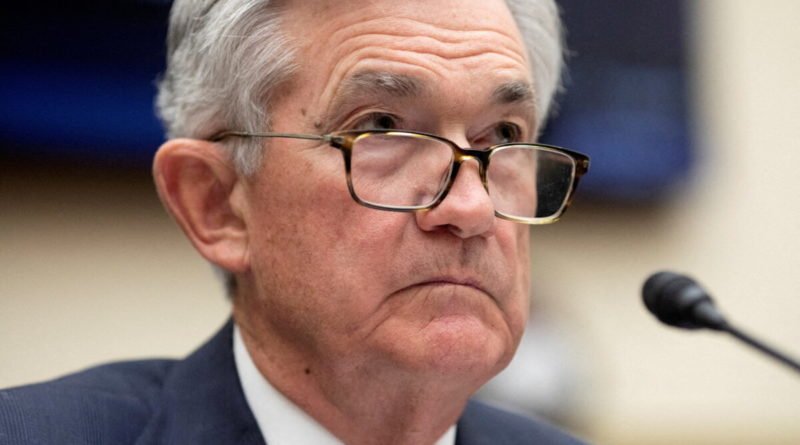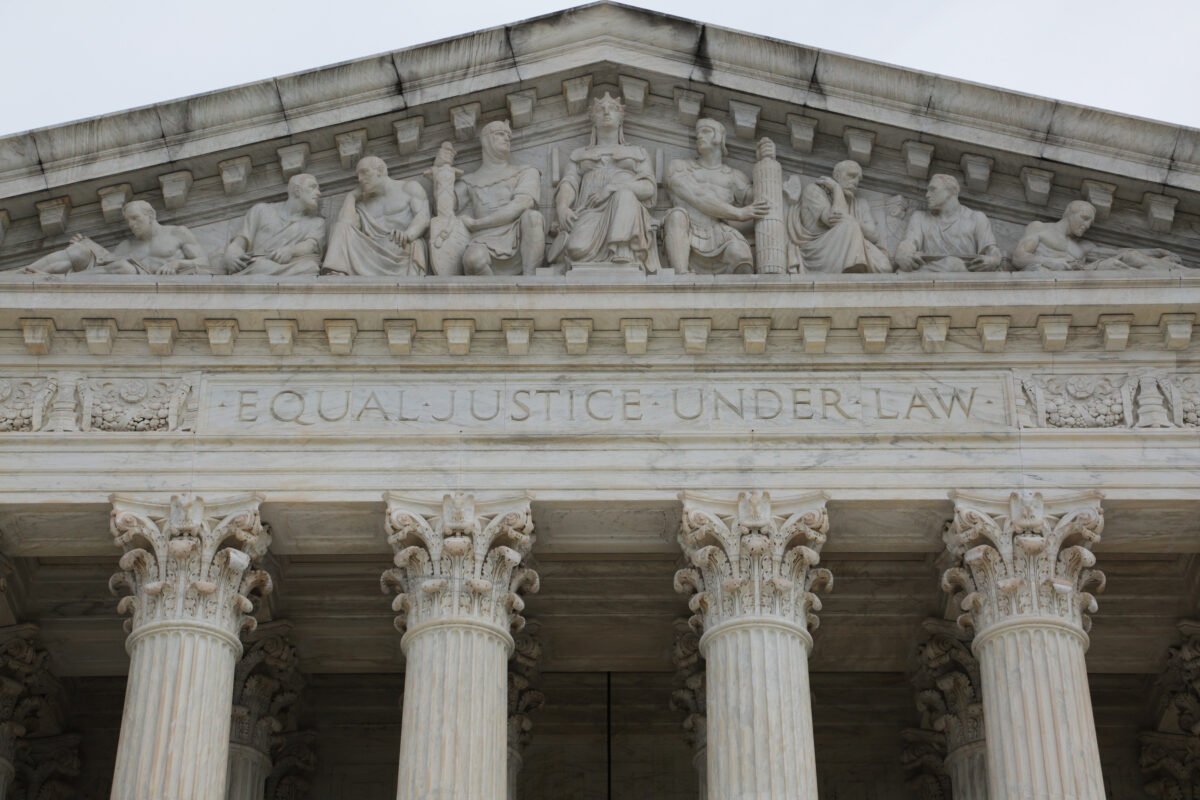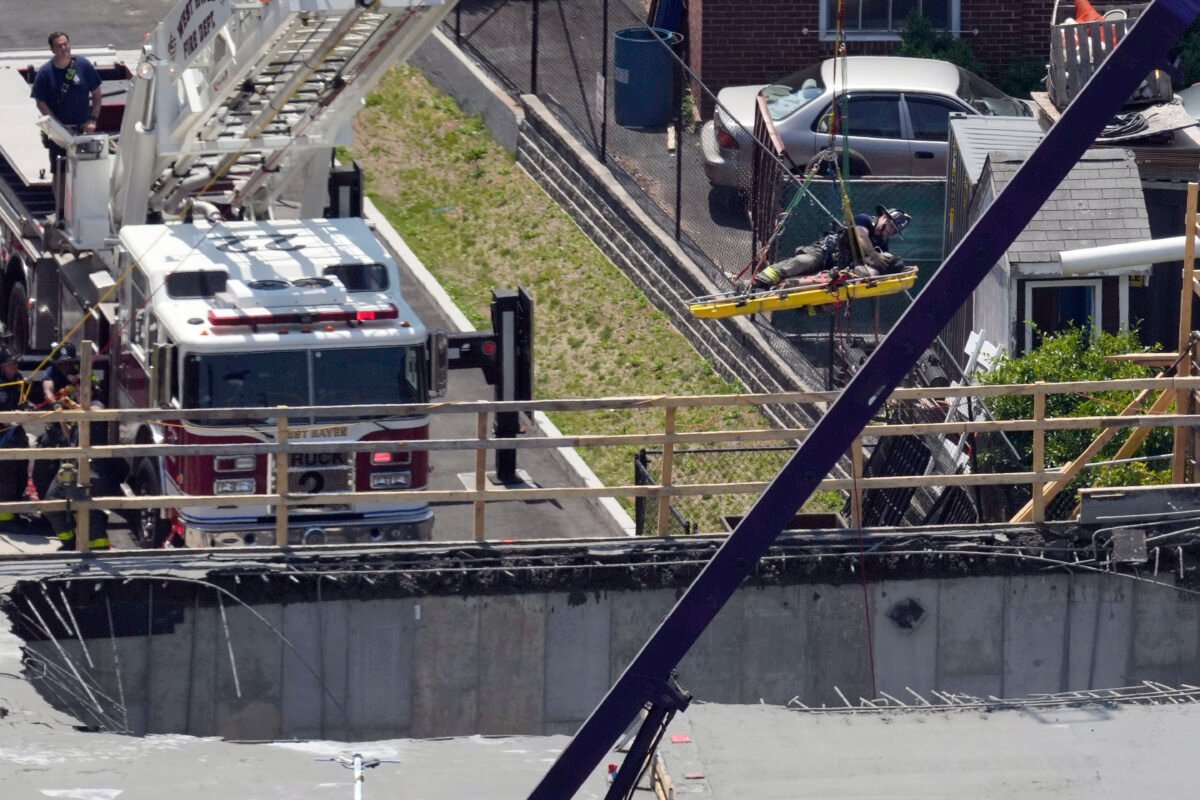Jerome Powell Reassures Lawmakers Federal Reserve Is Not a Climate Policymaker
Federal Reserve Chair Jerome Powell told lawmakers during a congressional hearing that the U.S. central bank is not a climate policymaker, reiterating comments about the Fed’s role in the environment.
Powell delivered his semi-annual Monetary Policy Report to the House Financial Services Committee on Tuesday, one day after appearing before the Senate Banking Committee.
The head of the central bank repeated the same expectations about monetary policy—interest rates will need to go higher than policymakers first thought—and noted that restoring price stability is paramount.
Several House Republicans used this opportunity to address the Fed’s potential role in climate change policymaking.
Rep. Patrick McHenry (R-N.C.) stated in his opening remarks that the Federal Reserve Board is establishing the foundation for climate policy that would be “implemented through Fed regulation with an opening salvo of a ‘scenario analysis.’”
“Addressing an issue like climate change is important, but a policy should originate in Congress—not the central bank,” the House Financial Services Committee Chair stated.
“As you’ve said, the Fed needs to ‘stick to our knitting.’ There is concern from many that the Fed is picking up new needles and knitting partisan sweaters.”
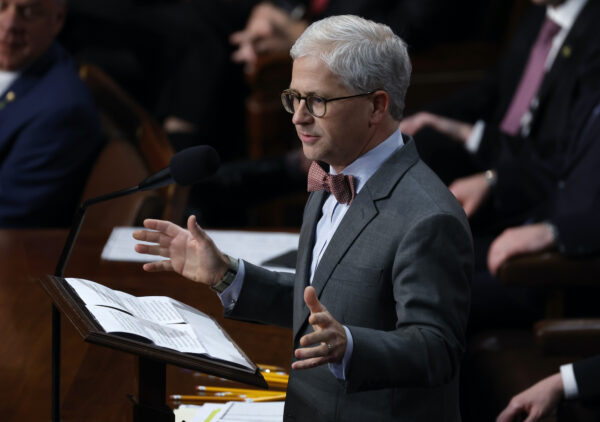
Rep. Frank Lucas (R-Okla.), also the Chair of the House Science Committee, expressed concern that the Fed could be heading toward crafting policy related to climate change. He alluded to the institution laying the groundwork for climate-related stress tests that might decrease access to capital for many sectors of the U.S. economy.
“This would also wind up the Federal Reserve to political pressure and force the Fed, in fact, to make policy decisions related to climate change,” Lucas noted. “We’ve seen, for example, this administration turned to regulators to impose climate policy as an alternative to the legislative process.”
But Powell insisted that this is not the case.
“We are not looking to move into an area where we’re actually becoming a climate policymaker,” Powell said.
“I would completely agree with you that over time that border needs to be very carefully guarded.”
A Slippery Slope?
The House GOP is concerned that the Fed could incrementally make climate a component of its policymaking tools and aims.
Michael S. Barr, the Fed Vice Chair of Supervision, in January revealed details of a pilot program that would direct the nation’s six largest banks to disclose the impact climate change could have on their operations. The review would show how financial institutions’ loan portfolios and commercial real estate holdings, particularly in the northeast, could be affected by droughts, floods, hurricanes, and other extreme weather events.
“The Fed has narrow, but important, responsibilities regarding climate-related financial risks—to ensure that banks understand and manage their material risks, including the financial risks from climate change,” Barr said in a statement. “The exercise we are launching today will advance the ability of supervisors and banks to analyze and manage emerging climate-related financial risks.”
This has been about three years in the making, as the central bank first considered (pdf) assessing the economic impacts of climate change in 2020.
However, despite these latest efforts, Powell has repeatedly vowed that the Fed would not dictate climate policy, as this would be an issue left up to Congress.
“I feel strongly that climate change is an important issue that needs to be addressed by elected people,” he added.
“We do have a narrow role, and that role will be around making sure that banks understand and can manage the risks that they’re running, and that’s going to be it.”
This mirrors what Powell told a summit in Stockholm, Sweden, earlier this year that the Fed must “stick to our statutory goals and authorities” and “resist the temptation to broaden our scope to address other important social issues of the day.”
In recent years, Democrats have pushed the Fed to incorporate climate change risks into its policymaking framework.
In August 2020, the Senate Democrats’ Special Committee on the Climate Crisis issued a report that the Fed needs to join the global Network for Greening the Financial System. This initiative comprises some of the world’s largest central banks to assist the financial sector in mitigating climate change risks.
“Climate change remains the biggest threat on the horizon, and the current fragility of the financial system increases the likelihood that climate risks will spark a systemic crisis,” the report stated. “Managing climate risks is a natural extension of the Fed’s core responsibility to ensure a stable and efficient financial system.”
President Joe Biden nominated Sarah Bloom Raskin, the former Treasury Department Deputy Secretary, to serve as the Vice Chair for banking supervision at the Fed Board of Governors. She championed (pdf) climate becoming a regulatory extension for the Fed and “reimagining” financial regulation, such as utilizing Fed stress tests and other regulatory powers to reshape the financial system and allocate capital to sustainable investments.
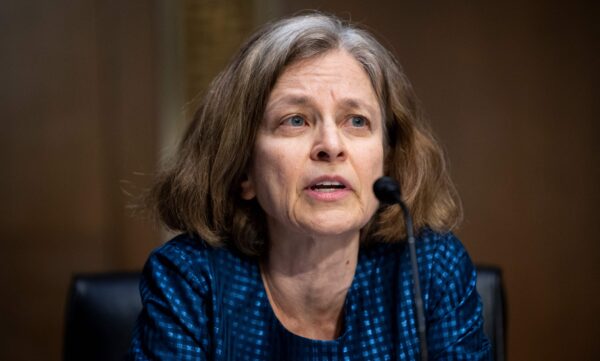
Powell has acknowledged that employing monetary policy or supervisory tools to promote a green economy or achieve climate-related objectives would be “inappropriate.”
Raskin withdrew her nomination last year after Sen. Joe Manchin (D-W.Va.) confirmed he would vote against her.
Biden accused her opponents of falling for “baseless attacks from industry and conservative interest groups.”
“Unfortunately, Senate Republicans are more focused on amplifying these false claims and protecting special interests than taking important steps toward addressing inflation and lowering costs for the American people,” Biden said in a statement.
The San Francisco Fed Bank asserted that climate change affects its three core roles: conducting monetary policy, regulating and supervising the banking system, and ensuring a safe-and-sound payment system.
“The Federal Reserve’s job is to promote a healthy, stable economy. This requires us to consider current and future risks—whether we have a direct influence on them or not. Climate change is one of those risks,” the regional central bank wrote.
Powell conceded during the latest hearing that he accepts some representatives’ slippery slope fears. But he assured Congress that the central bank would stay in its lane as long as he is Fed Chair.

